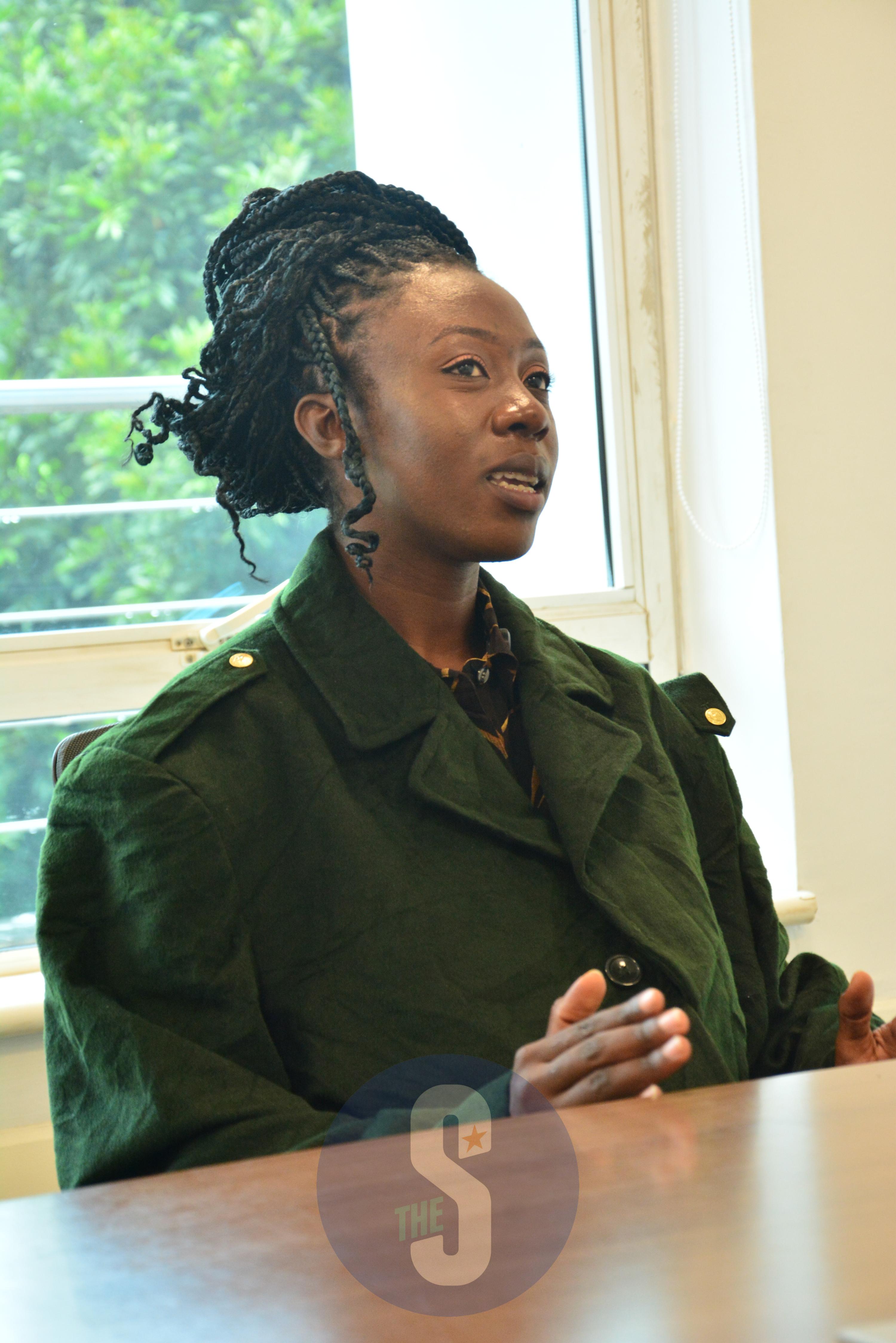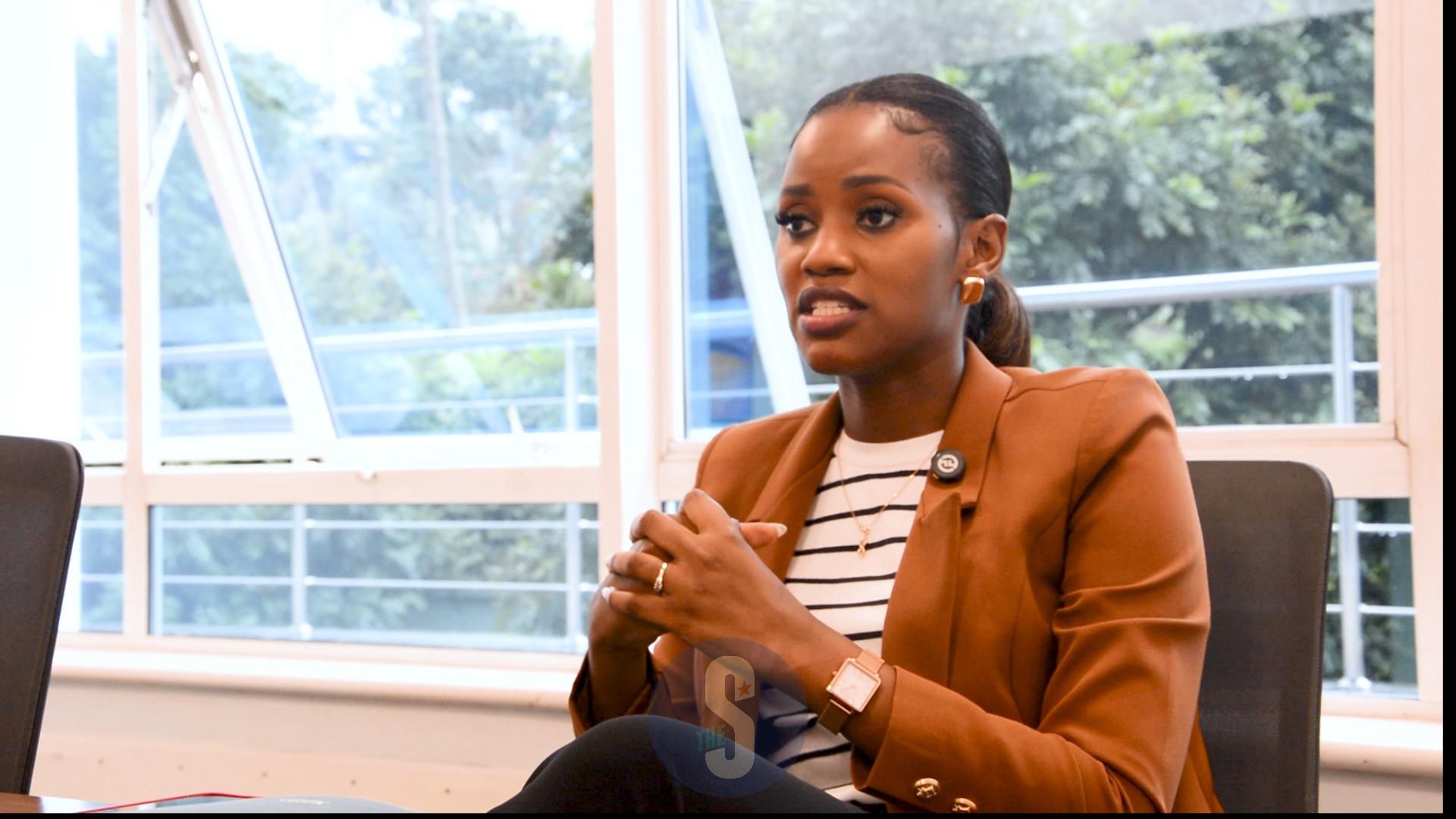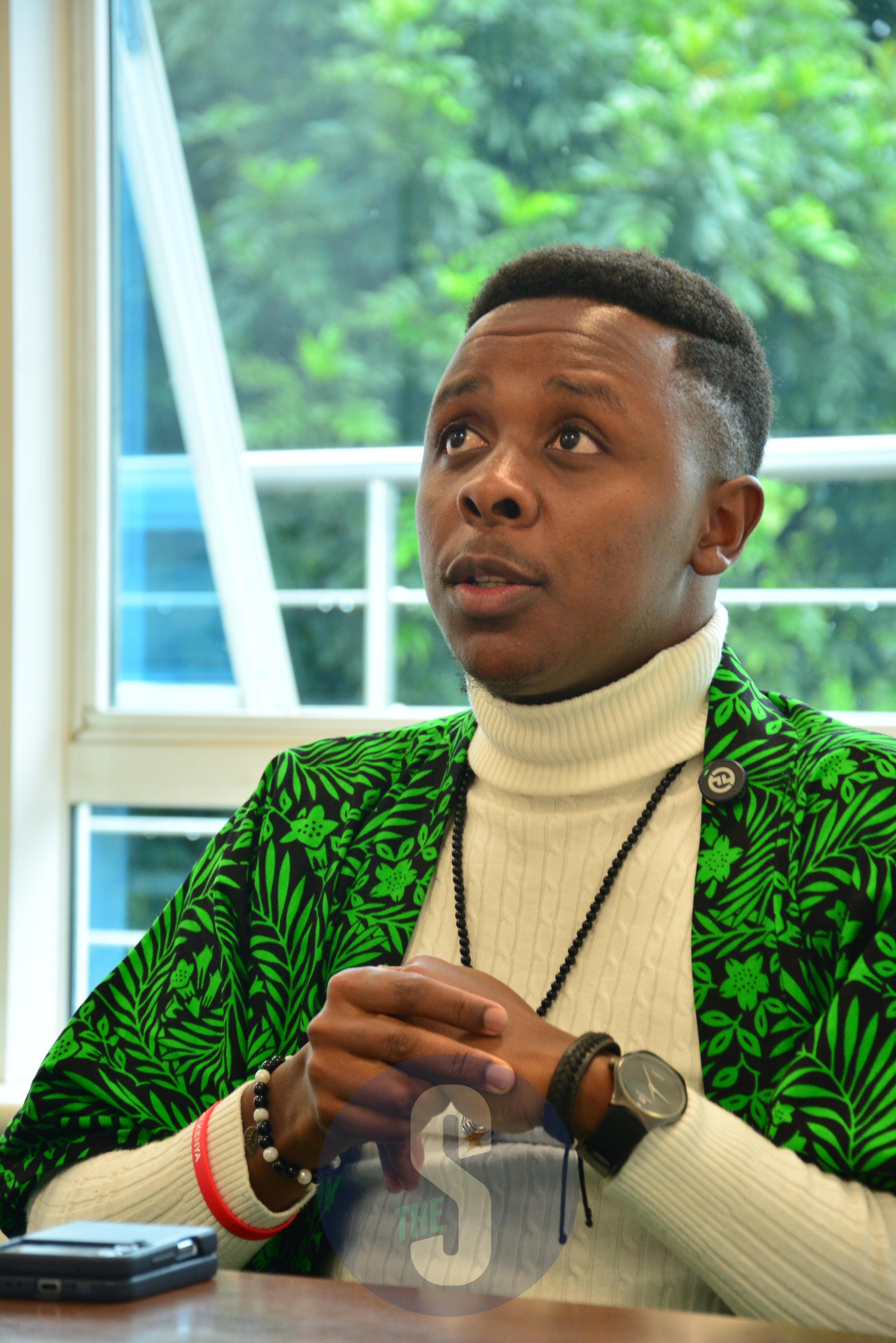
Growing up, school was straightforward—teachers came to class, lessons were taught, canes were raised, and exams determined our fate.
But nowhere in the curriculum did we learn how to process emotions, navigate trauma, or speak up about the harsh realities we witnessed at home.
In Kenya, where educational inequality remains a pressing issue, Teach for Kenya is working to change this narrative—one that Millennials and Gen X grew up with.
The organisation aims to not only provide quality
education but also equip students with emotional and social tools for life.
Beatriz Khalivitsi, a fellow with Teach for Kenya, has gained invaluable experience working with young learners from grades one to three.
“The journey has been full of highs and lows, especially working in schools in low-income areas. No one truly prepares you for it. You interact with learners from different backgrounds, each with their struggles,” she says.
At 24, Khalivitsi has learned that being a fellow requires constant innovation—not just in academics but in addressing students’ social and emotional needs.
“You have to keep finding new ways to engage them, to make learning meaningful beyond the classroom,” she adds.
How it started
While in university, Khalivitsi came across an opening at Teach for Kenya and applied without much thought.
A few weeks later, she
received an acceptance letter and underwent six weeks of training in emotional
intelligence and nurturing emotional skills.
She was then assigned to Githunguri primary in Machakos County, where her first day was nothing short of a shock.
“I walked into a class of about 130 third graders. The teacher in charge introduced me and then left. The kids stared at me, excited but unsure of who I was. I asked a boy his name, and instead of answering, he pushed his book toward me. Someone in the class shouted, ‘Teacher, he’s just rude.’ That was my first culture shock,” she recalls.
Khalivitsi says one of the learners told her to cane the children and not to laugh and talk with them.
“One learner just told me, teacher, you know, for this school, if you are a very polite teacher, these learners are going to play with you. So you have to cane them. In essence, what they are saying that if you don't cane us, we are going to be stubborn,” she says.
But in as much as she had a culture shock, a resolve was still strong. She is in her second year of the fellowship.
“You work in the school, and as a change agent, you have to make the learners understand who you are and come up with innovative ways for them to get your concept,” she says.
“And by that concept, we don't just talk about the academic concept. We're also talking about the emotional concept, the social concept, and the economic concept as well."
She says that she has created a safe space for the children to go to her and can confide in her about what is happening in their lives.
“When you get to create the safe space for the learners, they get to also be a safe space for you. Every time they come to you, talking to you about their issues, and then when you tell them something, every time they just run to you and give you those little hugs, it just makes your day,” she says.
Khalivitsi who has a background in Education says the six weeks that she got trained on as a fellow made her see teaching in a different light.
“I have a background on Education in Arts, English and Literature. But that was in high school. So knowing how to use this in the lower primary schools, especially the low-income schools where you don't know what to expect, is helpful,” she says.
Khalivitsi says this kind of training bridges the gap with lack of resources in many schools
“It is not just about the lack of books, not just the food in their school but the learners lack access to someone who can talk to them, ask them what is their problem, someone who can tell them that it's okay to have these days when you feel like you don't want to come to school or you don't want to learn,” she says.

The Founder and Chief Executive Officer Yukabeth Kidenda says her organisation seeks to champion sustainable development goal 4, and that's quality education for all Kenyan children.
“We do this by running a two-year paid teaching fellowship that recruits, trains and places graduates in our country's most underprivileged schools. The fellowship is also designed to be a very intensive leadership development program, “ she says.
Kidenda says that as an organisation, she hopes that after the fellows get the fellowship, they will be able to reform schools and schooling systems.
“We serve children primarily from low-income communities. And in those communities, you have issues such as poverty, which is one of the key issues, sexual reproductive health, lack of knowledge in that sector, period poverty, sexual gender-based violence, unstable homes, alcoholic parents, nutritional and health challenges,” she says.
“And so, for us to remove the barriers that prevent Kenyan children from unlocking their full potential, we need to address all of these issues. And we believe that teachers who are trained to be teachers do not have the specific lens that is needed to address all of these issues.”
She says that teacher leaders who are selected do not have to necessarily have a background in Education.
“We recruit from diverse academic backgrounds, and so you don't have to be a teacher to join our program. We are a leadership development program and not a teacher staffing program,” She says.
However, she notes that they do not work alone but in partnership with the Ministry of Education.
“We would want to complement the work that they are doing. And so, we are bringing in passionate graduates who are agile, who are looking to improve educational outcomes for these children to change the trajectory of their lives,” she says.
Speaking in Nairobi during an interview, another fellow, Mafat Flavian, a Cohort 4 fellow, says joining Teach for Kenya was a leap of faith.
"I heard about Teach for Kenya through a friend. He sent me a link, and I thought, ‘This looks like something I can do.’ I’ve always been passionate about giving back to the community, but fresh out of university, I didn’t know exactly how to do it," he recalls.
After doing some research on the organisation and its impact, he felt inspired even without having an Education background.
"I was working on another job at the time, but
the moment I applied, I resigned—even before receiving my acceptance letter! I
just knew this was something I needed to do," he says with a laugh.
After training, Mafat was placed at Imara Comprehensive School in Kayole, a densely populated and underserved area.
"Nothing truly prepares you for the reality of the classroom. When I was in primary school, my class had 45 students, and even then, we were considered overpopulated. Today, I teach a class of 97 learners—almost double that number!" he says.
At first, he was excited to work with lower-grade students, hoping to shape young minds while they were still impressionable.
"I’ve always believed that it's easier to learn than to unlearn and relearn. Young children are like sponges; they absorb everything. I thought I was prepared. But the moment I stepped into that classroom, everything changed," he admits.
Beyond the academic challenges, Mafat quickly realised that many of his students were dealing with trauma.
"Children in underserved areas face so much family struggles, violence, neglect. And as a teacher, you’re not just an educator. To some kids, you become a father figure, an older brother, an uncle or someone they can trust. That emotional weight is something no one prepares you for," he reflects.
Just like Khavilitsi, Mafat’s first few months were overwhelming, adding that building an emotional connection is a priority.
"I came in ready to teach, but I soon learned that before you can teach, you have to connect. These kids need to feel safe and loved before they can focus on learning. If they don’t feel secure in your class, they won’t absorb anything," he explains.
"Each morning, I had to check in on my students emotionally. Are they okay? Are they learning more than just academics—like leadership, conflict resolution, and emotional intelligence? Sometimes, I’d handle more personal issues in a day than actual lessons. It took time to adjust, but once I did, my classroom became a safe space.”
Mafat says one of the biggest challenges he faced was helping students cope with trauma.
"Young children are open. They’ll tell you everything about their home lives, their fears, their struggles. You realize very quickly that these issues affect their ability to learn," he says.
He says that many parents don’t realize how their home environment affects their children.
“When I reached out, some were defensive, expecting criticism. But once they saw I genuinely wanted to help, they opened up. Sometimes, a child just needs to feel heard. My goal was always to ensure they wanted to come to school the next day. That was my measure of success," he says.
Mafat believes that emotional intelligence is just as important as academic success.
"When we were growing up, children were raised like machines—follow rules, don’t question authority, don’t get too close to teachers. But today’s children are different. They know more, they see more, and they need emotional support to navigate the world," he explains.
In a fast-changing world, he argues, soft skills like empathy, leadership, and resilience are essential.
"We want students who will grow up to be kind, self-aware, and adaptable. The world is facing challenges like climate change, AI, and social instability. If we don’t nurture emotionally intelligent, critical thinkers, we are failing the next generation," he emphasizes
How is this training different?
Unlike traditional teachers, Mafat says teachers for Kenya fellows focus on more than just completing the syllabus.
"System teachers and TFK fellows have the same responsibilities; we create lesson plans, follow the curriculum, and manage classrooms. But the key difference is our approach. Our goal isn’t just to finish the syllabus but to develop well-rounded learners who have leadership skills, confidence, and a passion for lifelong learning," Mafat explains.

One of the biggest hurdles he faces is large class sizes, adding that he copes through peer support.
"Teaching nearly 100 students at once is exhausting. With limited resources, it’s difficult to provide personalized attention. It’s why we need more investment in education," he says.
"You can’t pour from an empty cup. I recharge by reading, connecting with my spirituality, and talking to fellow TFK teachers. Knowing others are facing the same struggles helps.
Another major issue he highlighted was the lack of foundational literacy and numeracy.
"Many students struggle with reading and basic math, and in blended classrooms—where students with special needs learn alongside others—this challenge is even greater. If children don’t master basic literacy and numeracy early on, their entire education suffers," he explains.
To address this, Mafat says that he is focusing on specialized training.
"TFK offers continuous professional development, and I’ve taken extra courses on foundational literacy. I’m determined to ensure my students don’t get left behind," he says.
As Mafat’s two-year fellowship nears its end, he is already planning his next steps.
"I want to specialize in foundational literacy and numeracy. There’s a huge gap, and underserved communities suffer the most. I plan to pursue a master’s in this field so I can work on systemic solutions," he shares.
Khavilitsi on the other had says one of the challenges she has gone through is mayb some teachers seeing her as an outsider.
“It was quite tricky or hectic to get to work with the system teachers because the first thing that crosses their minds when they see a young teacher working through that door is that this is someone I'm going to give all my work,” she says.
“So you get even working with them on a concept is so hard. They feel like you are wasting the learners' time.”
She says there is a time she was using art and music to allow the learners to just unwind and loosen up ahead of the lesson but this was not taken lightly.
“There's a time a teacher came into class, and I was doing this value lesson where we were just expressing our emotions through art with music over there. And then she just tells me, you cannot be listening to music in class.
Recruitment
The CEO, Kidenda, says the organisation normally carries out a lengthy and rigorous recruitment process that begins in April of every year and concludes in September.
“We hold a series of events to sensitise young graduates about the opportunity that we have. The number one competency that we recruit for is passion because we believe that the why you do something is a very key and important thing in someone's journey. And so, that's the first competency we recruit for, but we also look for demonstrated leadership,” she says.
She says a person has to demonstrate in their past engagements a gravitation towards leadership.
“We are also looking for resilience because the communities that we are working with are dealing with a lot of challenges, and going into those communities requires a level of resilience,” she says.
She says the fellows adhere to the same regulations as other educators, adding that they collaborate closely with head teachers, whom they refer to as system teachers.
“Many of our fellows co-teach in classrooms alongside these system teachers, emphasizing a cooperative approach. Our goal is not to present ourselves as the ultimate authority but to work alongside existing educators to improve learning outcomes, particularly in foundational literacy and numeracy,” she says.
"Both teachers share the same goal: to ensure students develop strong reading and writing skills. From pre-primary to Grade 3, children learn to read and write, but from Grade 4 onwards, they read and write to learn. Given the class sizes, having two educators in the room is an invaluable resource rather than a source of conflict."
To further strengthen this collaborative model, she says that the organisation organizes monthly professional development sessions, inviting both system teachers and fellows.
"We don't see this as competition. This is an opportunity to accelerate learning outcomes,” she says.
Kidenda says that since its inception in 2021, Teach for Kenya has expanded strategically.
"We started in Nairobi, then moved to Kisumu in 2023, and Machakos in 2025. By 2026, we plan to expand to Wajir. Currently, 200 fellows are placed in 63 partner schools across three counties, with each fellow receiving a monthly stipend Sh 30,000,” she says.
This, she says, helps fellows to navigate economic challenges.
Way forward and final thoughts
To improve education, Mafat believes the government must invest more in lower grades.
"Early education is often overlooked, yet it’s the foundation for lifelong learning. More resources should be directed toward training teachers, especially in special needs education, and reducing class sizes," he suggests.
For Mafat, teaching is more than a job—it’s a calling.
"At the end of the day, my biggest reward is seeing my students excited to learn. Knowing that I’ve made even the smallest difference in their lives makes it all worth it," he says with a smile.
Teach for Kenya is proving that education is about more than just academics—it’s about shaping leaders, building resilience, and giving every child a chance to succeed.
Kidendia says that while Teach for Kenya has seen strong support from the Ministry of Education, she urged private entities to play a bigger role in education reform.
"The government has been instrumental in our growth, but there is a wealth of untapped opportunities for private organizations to contribute," she said.
"We encourage education entrepreneurs to engage with the government to ensure their efforts align with national priorities."
As the program continues to expand, its core mission remains
clear: to equip children with the skills they need to succeed while fostering
leadership and social change at the community level. "We don’t just
teach—we transform."










